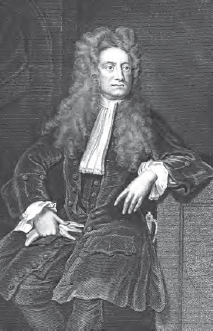Skeptical and Natural PhilosophyFrancis Bacon and the Scientific Revolution |
Who was Isaac Newton? |
Isaac Newton (1642–1727) was one of the greatest scientists and natural philosophers of the Western tradition. Alexander Pope wrote his epitaph:
Nature and Nature’s laws lay hid in sight.
God said, “Let Newton be!” and all was light.
Newton made coherent, mathematically sound sense of the Copernican Theory, Kepler’s and Tycho Brahe’s discoveries, and Galileo’s findings. He united terrestrial and celestial mechanics in a comprehensive cosmological system that supported further research for over 300 years. His scientific view of the cosmos included a place for the God of Christians, which was much appreciated in his time. Newton’s equations are still useful for calculations of motion in the middle range of medium-sized objects close to the surface of Earth. (Newton’s theory is not useful for sub-atomic particle research and measurements made in light years.)

